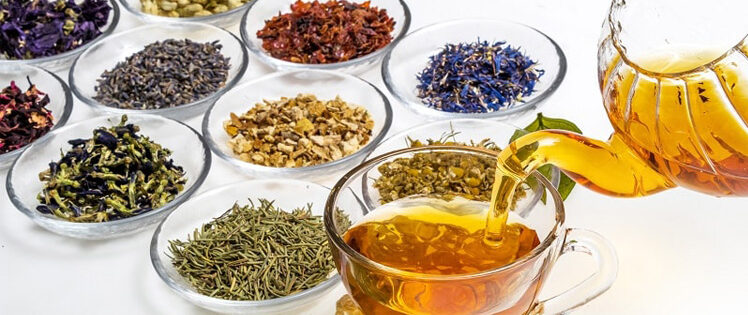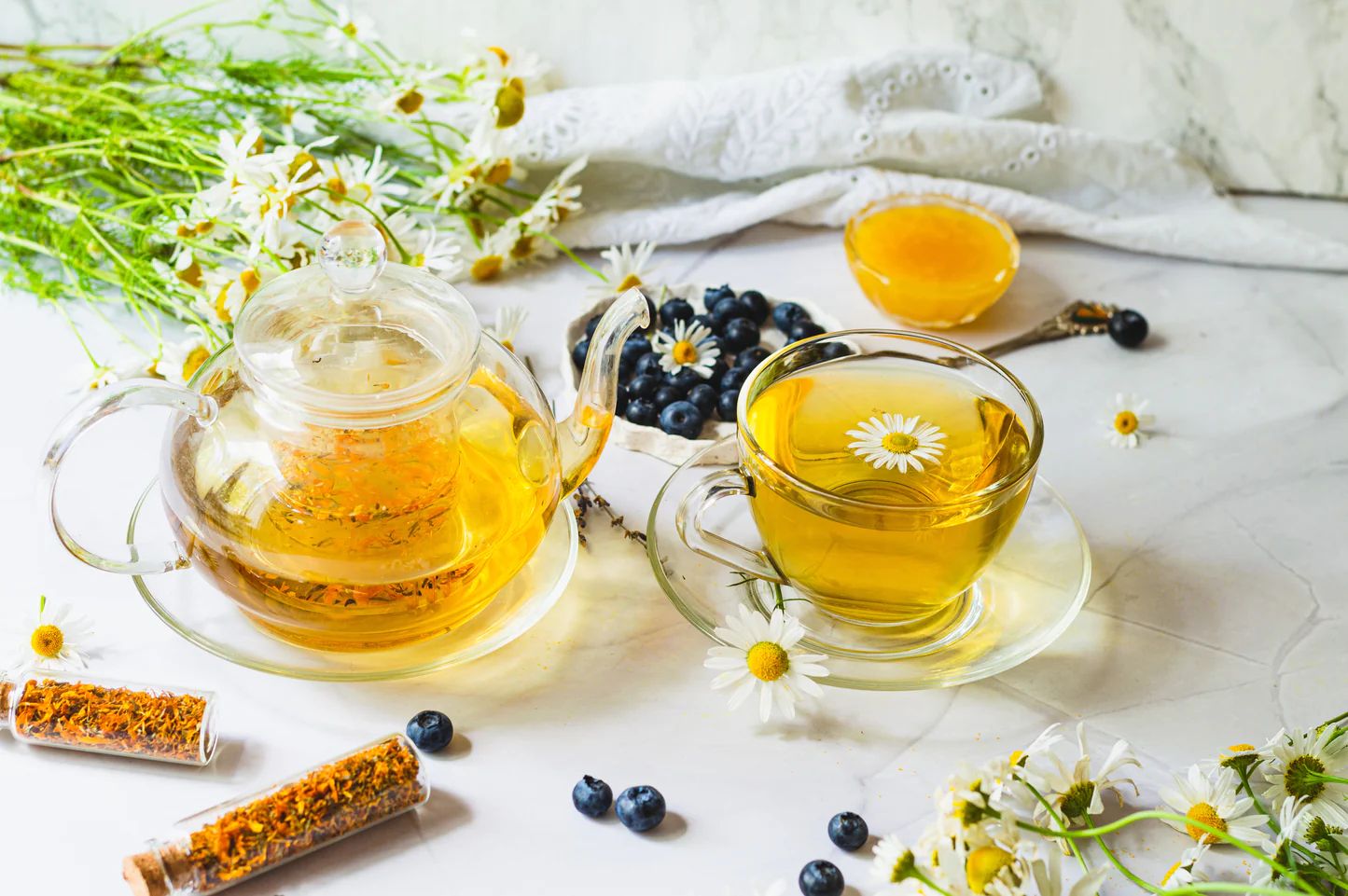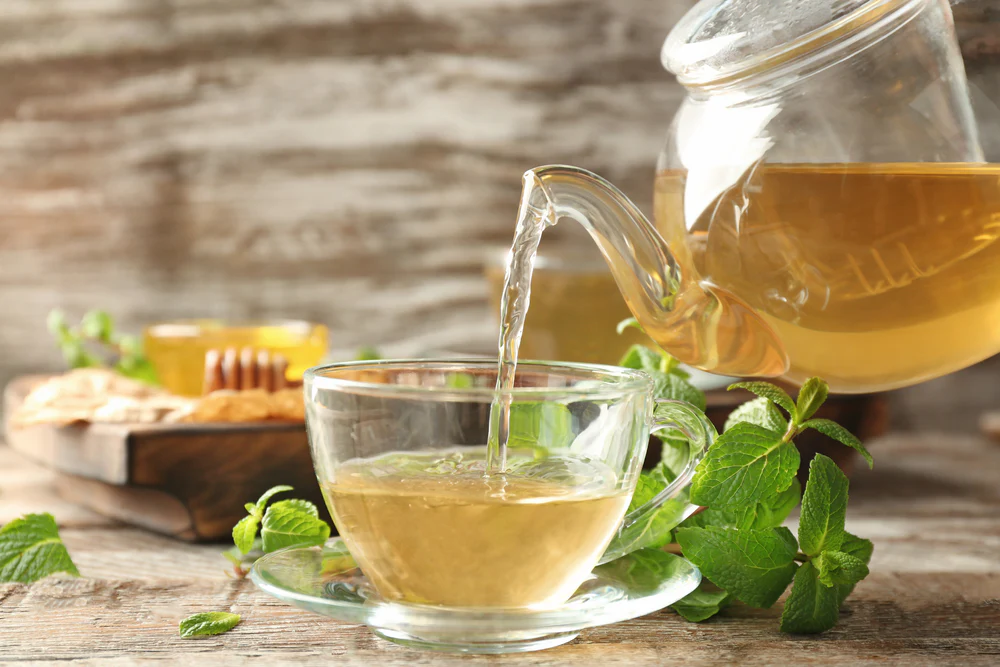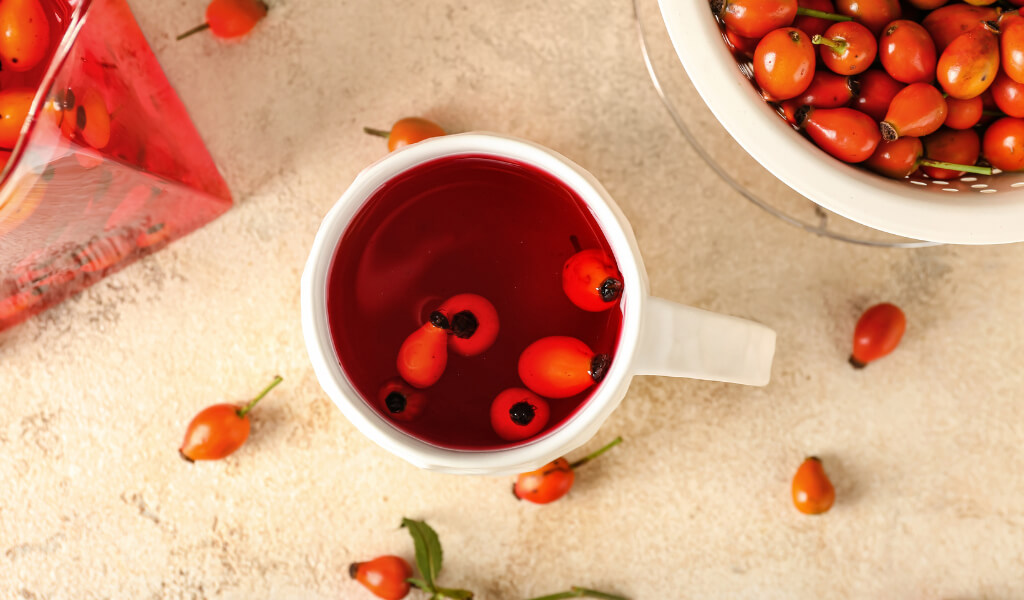In a world where health-conscious choices are gaining prominence, the popularity of herbal tea has soared to new heights. More than just a refreshing beverage, herbal tea offers a myriad of health benefits, especially when crafted by private label beverage manufacturers. In this blog post, we will delve into the various advantages of choosing herbal tea from these specialized manufacturers.
Read more: Soft Drink Manufacturers Reveals Sugarcane Juice Market Insights
What is Herb Tea? Fav Drinks of Private Label Beverage Manufacturers
Herbal tea, often referred to as herbal tea or tisane, is a beverage made by infusing various parts of plants, such as leaves, flowers, seeds, or roots, in hot water. Unlike true tea, which is derived from the Camellia sinensis plant, herbal tea does not contain tea leaves and is therefore caffeine-free. Herbal teas are enjoyed for their aromatic flavors, potential health benefits, and often soothing or invigorating properties.
Common herbs and plants used in the preparation of herb tea include:
Peppermint: Known for its refreshing and minty flavor, peppermint tea is popular for aiding digestion and providing a cooling sensation.
Chamomile: Chamomile tea is renowned for its calming properties, making it a popular choice for relaxation and sleep support.
Lavender: Lavender-infused tea is appreciated for its floral and slightly sweet taste, often enjoyed for its calming effects.
Ginger: Ginger tea is known for its spicy and warming flavor, and it is often consumed to soothe nausea, support digestion, and boost the immune system.
Hibiscus: Hibiscus tea, made from the dried calyx of the hibiscus flower, has a tart flavor and is rich in antioxidants.
Lemon Balm: Lemon balm tea is made from the leaves of the lemon balm plant and is valued for its mild lemon flavor and potential calming effects.
Echinacea: Echinacea tea is often consumed to support the immune system, particularly during times of illness.
Nettle: Nettle tea, made from the leaves of the nettle plant, is praised for its potential health benefits, including anti-inflammatory properties.
Rosehip: Rosehip tea, derived from the fruit of the rose plant, is known for its high vitamin C content and is often consumed for immune system support.
Benefits of Herbal Tea
Chamomile Tea
Widely recognized for its soothing qualities, chamomile tea is commonly employed as a remedy to promote restful sleep. Numerous studies have indicated its potential to enhance sleep quality, particularly among older adults and postpartum women
Beyond its role as a natural sleep aid, chamomile is attributed with additional health benefits. It is thought to possess antibacterial and anti-inflammatory properties, contributing to its potential as a holistic wellness tonic.
Furthermore, research suggests that chamomile may offer liver-protective effects, enhancing its appeal as a versatile herbal remedy.
Intriguingly, chamomile’s positive impact extends beyond sleep-related benefits. Studies have explored its potential to aid blood sugar control and alleviate symptoms associated with premenstrual syndrome. This makes chamomile tea not only a comforting beverage for relaxation but also a potential ally in promoting overall well-being.
Peppermint Tea
Primarily renowned for its positive impact on digestive well-being, peppermint tea extends its influence beyond the realm of digestion to encompass a spectrum of health benefits, including antioxidant, anticancer, antibacterial, and antiviral properties.
Numerous studies have explored the potential of peppermint oil, a key component of peppermint tea, in alleviating various digestive issues. From relieving indigestion and nausea to addressing stomach pain and symptoms associated with irritable bowel syndrome (IBS), research suggests that peppermint oil preparations can offer therapeutic effects.
It’s important to note, however, that the concentration of peppermint oil in peppermint tea may differ from the dosages used in concentrated supplements studied in scientific research. Consequently, the equivalence of effects between peppermint tea and concentrated supplements remains unclear, necessitating further investigation into the subject.
Ginger Tea
Ginger tea is renowned for its robust content of disease-fighting antioxidants and is widely acknowledged for its efficacy in alleviating nausea, as supported by numerous studies. Notably, research consistently demonstrates the effectiveness of ginger in relieving nausea, particularly during early pregnancy, and it shows promise in mitigating nausea induced by cancer treatments and surgery.
Beyond its anti-nausea properties, scientific evidence indicates that ginger may play a role in preventing stomach ulcers, easing indigestion, and alleviating menstrual pain. Moreover, certain studies suggest that ginger supplements have the potential to enhance blood sugar control and positively impact lipid levels, offering potential benefits for individuals with diabetes. The multifaceted health advantages associated with ginger make it a versatile and beneficial addition to one’s wellness routine.
Hibiscus Tea
Beyond its vibrant color and distinctive flavor, hibiscus tea boasts a range of healthful properties. While research findings are varied, certain studies suggest that hibiscus has the potential to notably reduce both total and LDL (bad) cholesterol levels, as well as lower blood pressure.
Furthermore, a separate study revealed that the consumption of hibiscus tea extract over six weeks led to a significant reduction in oxidative stress among male soccer players. It is essential, however, to exercise caution and consult with a healthcare professional before incorporating hibiscus tea into your routine, especially if you are taking diuretics, as there may be potential interactions with medications. The diverse potential health benefits of hibiscus tea underscore its appeal as a beverage that not only delights the senses but may also contribute to overall well-being.
Echinacea Tea
Echinacea tea, a widely recognized remedy, is often touted for its potential in preventing and treating the common cold. Substantive evidence indicates that echinacea may play a role in enhancing the immune system, thereby aiding the body’s defense against infections.
While additional research is warranted, certain studies have suggested that echinacea can reduce the duration of the common cold or alleviate the severity of its symptoms. The ongoing exploration of echinacea’s therapeutic properties underscores its standing as a popular and potentially beneficial option for those seeking natural ways to support immune health and mitigate the impact of the common cold.
Lemon Balm Tea
Lemon balm tea, characterized by its light and lemony flavor, is not only a delightful beverage but also appears to offer health-promoting properties.
In a small-scale study, the consumption of lemon balm tea over 6 weeks demonstrated the ability to improve arterial stiffness—a significant risk factor for conditions such as heart disease, stroke, and cognitive decline. Furthermore, research suggests that drinking lemon balm tea may enhance the body’s natural antioxidant enzymes, providing a defense against oxidative damage.
Beyond its potential cardiovascular benefits, a comprehensive review highlighted that lemon balm could be associated with improvements in symptoms of depression and anxiety, presenting a promising avenue for mental well-being without serious side effects. The multifaceted advantages of lemon balm tea, spanning from cardiovascular health to mental wellness, underscore its appeal as a beverage that not only delights the palate but may contribute positively to overall health.
Rose Hip Tea
Rose hip tea, rich in vitamin C and valuable plant compounds boasting anti-inflammatory properties, stands out as a beverage with potential health benefits.
Earlier studies suggest that rose hip powder may have a positive impact on reducing inflammation and alleviating symptoms associated with rheumatoid arthritis and osteoarthritis, including pain relief. Furthermore, research indicates that rose hips might play a role in weight management, contributing to a decrease in body mass index (BMI) and abdominal fat.
Read more: Choose Your Appropriate White Label Drinks With Us
While these findings are intriguing, it is essential to note that more recent human studies are required to solidify the understanding of the potential benefits associated with rose hip tea. The nutritional richness and purported anti-inflammatory properties make rose hip tea a subject of interest for those seeking natural ways to support joint health and manage weight.
In conclusion, the benefits of herbal tea, as crafted by private label beverage manufacturers, are vast and varied. From the soothing properties of chamomile to the immune-boosting potential of echinacea, herbal teas offer a holistic approach to well-being.
As private label beverage manufacturers continue to delve into these herbal blends, the diverse advantages of herbal teas present an enticing option for those seeking natural and flavorful ways to enhance their health and overall lifestyle.








